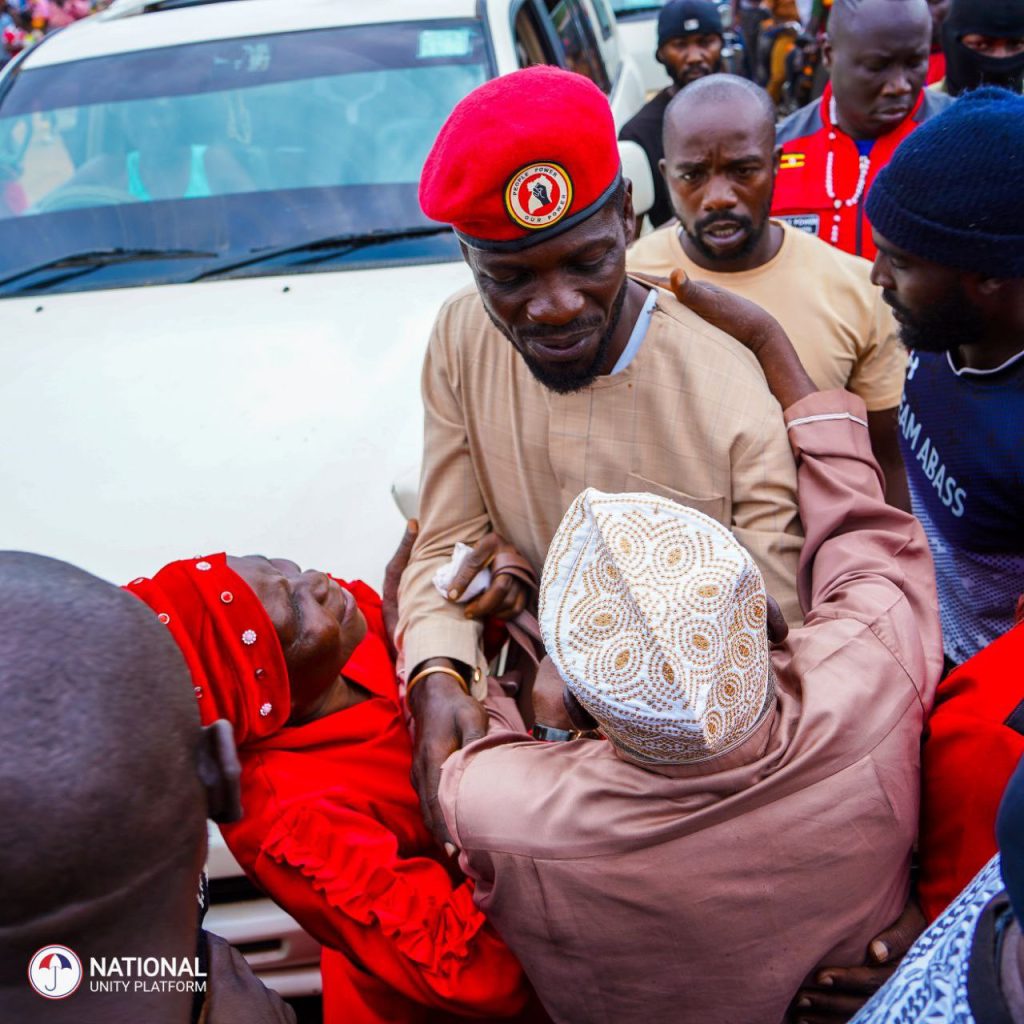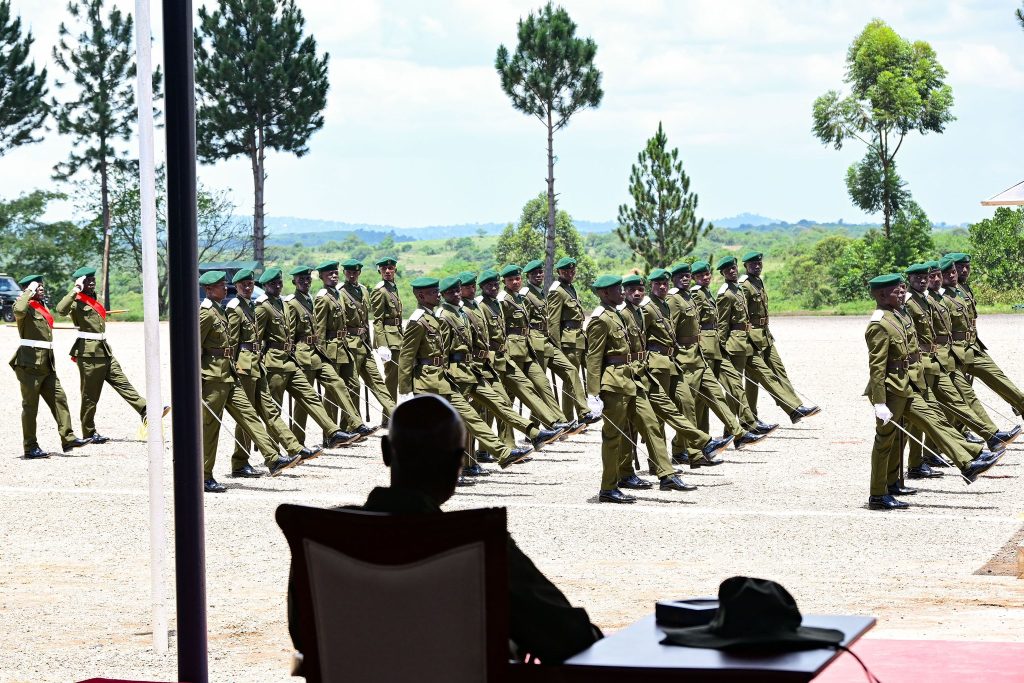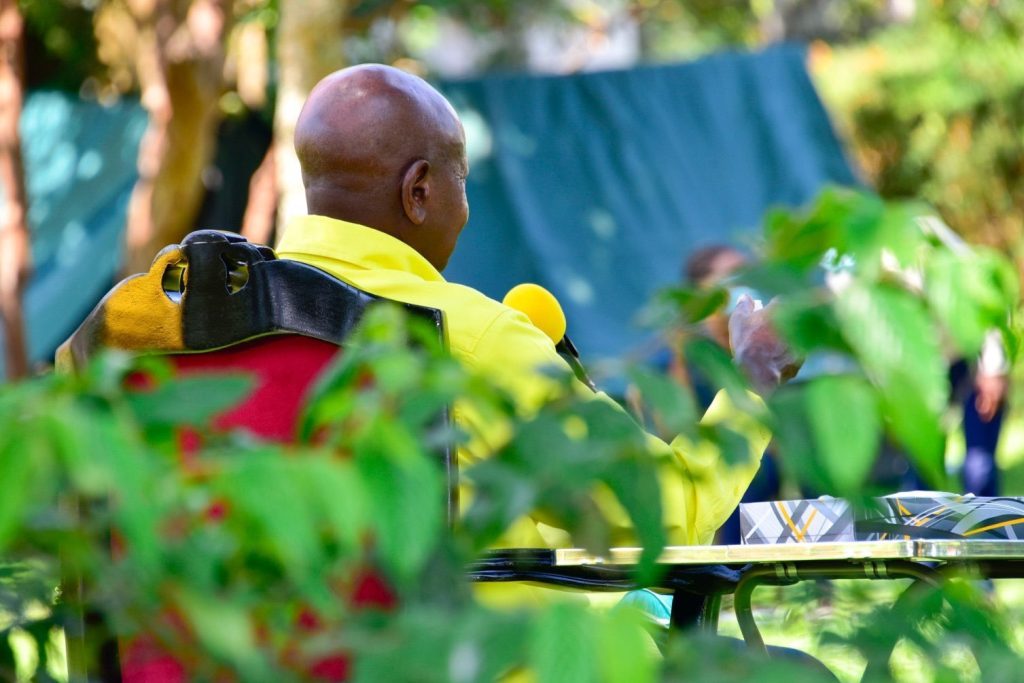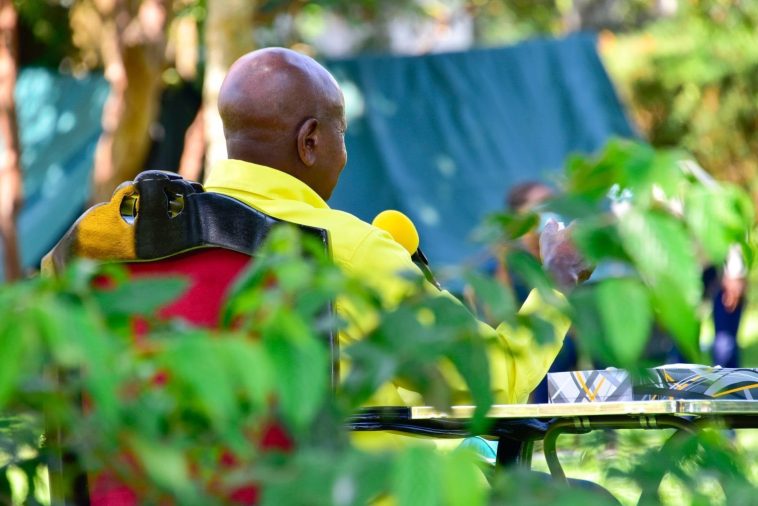By Faila Binti Kankwala and Mwanza Ade
Uganda, a country once seen as a beacon of stability in East Africa, is now a prime example of how elections can be used to legitimize authoritarian rule rather than promote democracy.
While President Yoweri Museveni continues to hold elections, critics argue that these are mere formalities designed to maintain his decades-long grip on power.
With a political landscape dominated by intimidation, state violence, and constitutional manipulation, Uganda’s democratic decline reflects a broader crisis unfolding across Africa.
From Rwanda to Cameroon, leaders have perfected the art of clinging to power while maintaining the illusion of democratic governance.
Elections Without Democracy
Uganda’s last presidential election in 2021 followed a familiar pattern: opposition candidates faced arbitrary arrests, campaigns were restricted, and security forces patrolled the streets to suppress dissent.
Robert Kyagulanyi, popularly known as Bobi Wine, emerged as the main challenger, rallying the country’s youth against Museveni’s 38-year rule.
However, his campaign was met with brutal crackdowns, and on election day, Uganda went dark literally.
The government shut down the internet, preventing independent verification of results.
Despite widespread allegations of fraud, Museveni was declared the winner with nearly 59% of the vote.
Bobi Wine rejected the results, calling them a Sham, but with courts and electoral bodies firmly under government control, there was little room for legal recourse.
This scenario is not unique to Uganda. Across the continent, elections are increasingly used as a tool of control rather than as a mechanism for change.
In countries like Zimbabwe, Ethiopia, and Burundi, opposition leaders face similar obstacles, making democratic transitions nearly impossible.
The Death of Political Competition
At the heart of Uganda’s authoritarian resurgence is the systematic elimination of political competition.
Opposition rallies are frequently banned under the guise of maintaining public order, and activists who criticize the government face harassment or worse.
In 2021, at least 54 people were killed in protests following Bobi Wine’s arrest a chilling message to anyone who dares to challenge the status quo.

The government doesn’t fear elections; it fears a free and fair contest, says a political analyst in Kampala, speaking anonymously for fear of retaliation.
That’s why they control every aspect of the process from the electoral commission to the courts and security forces.
Museveni’s long rule has been facilitated by repeated constitutional amendments that have removed presidential term and age limits.
Originally hailed as a leader who would restore stability after the chaos of the Idi Amin and Milton Obote eras, he has since abandoned the democratic principles he once championed.
The Role of the Military in Politics
A major pillar of Museveni’s power is the military. The Uganda People’s Defense Forces (UPDF) are deeply embedded in politics, ensuring that no real challenge to Museveni’s authority emerges.
The army has been deployed to crush protests, while senior military officials openly align with the ruling party.
In recent years, Uganda’s security apparatus has extended its reach beyond its borders.
The country plays a key role in regional peacekeeping missions, particularly in Somalia, which has helped Museveni maintain strong ties with Western powers.
This military cooperation has, in turn, muted international criticism of his human rights record.
The Military as the Backbone of Museveni’s Rule
Uganda’s political system is not just sustained by laws and elections it is upheld by the military.
The Uganda People’s Defense Forces (UPDF) are deeply entrenched in governance, ensuring that President Museveni’s grip on power remains unchallenged.
During the 2021 elections, soldiers patrolled opposition strongholds, intimidating voters and suppressing dissent.
When opposition candidate Bobi Wine gained popularity, his campaign events were routinely blocked, and his supporters faced arbitrary arrests. Security forces were deployed to silence protests, leading to dozens of deaths.
This militarization of politics is not unique to Uganda. Across Africa, armies have played a decisive role in shaping political power. For instance in Egypt, the military has ruled from behind the scenes since the 2013 coup against Mohamed Morsi.

Coming down to the Southern Africa in Zimbabwe, the army removed Robert Mugabe in 2017, only to consolidate control under President Mnangagwa. In Sudan, hopes for civilian rule were dashed when the military took full control again in 2021.

In Uganda, Museveni has not only relied on the UPDF but has also positioned his son, General Muhoozi Kainerugaba, as a key military figure, fueling speculation that the presidency may become a dynastic affair. With the military firmly aligned with the ruling party, opposition forces face an uphill battle in challenging the status quo.
The role of the army in Uganda’s politics underscores a wider problem in Africa’s democratization process.
Elections can take place, but as long as military forces act as political enforcers rather than neutral defenders of the state, true democracy remains out of reach.
Can Democracy Survive in Uganda?
Despite these challenges, Uganda’s youth continue to push for change. With over 75% of the population under the age of 30, frustration is growing over high unemployment, corruption, and lack of political freedoms.
Shrinking Youthful Digital Activism
The rise of digital activism has allowed young Ugandans to bypass state-controlled media, exposing government abuses to the world.
However, the road to democratization remains uncertain. The government has introduced strict cyber laws to monitor and censor online dissent, and prominent activists have been arrested for their social media posts.
However, the road to democratization remains uncertain. The government has introduced strict cyber laws to monitor and censor online dissent, and prominent activists have been arrested for their social media posts.
Meanwhile, Museveni has indicated no plans to step down, raising concerns that Uganda could become another African state where power transfers only through force.
As Africa grapples with the challenge of consolidating democracy, Uganda stands as a stark warning.
Elections alone do not make a democracy. Without political freedoms, independent institutions, and genuine competition, they serve only to entrench authoritarianism.
For Uganda, and for Africa as a whole, the fight for democracy is far from over but it is a fight that will require more than just ballots.
The authors are students at Africa University pursuing a Bachelor’s of Science (Honors) in International Relations.
This post was created with our nice and easy submission form. Create your post!








